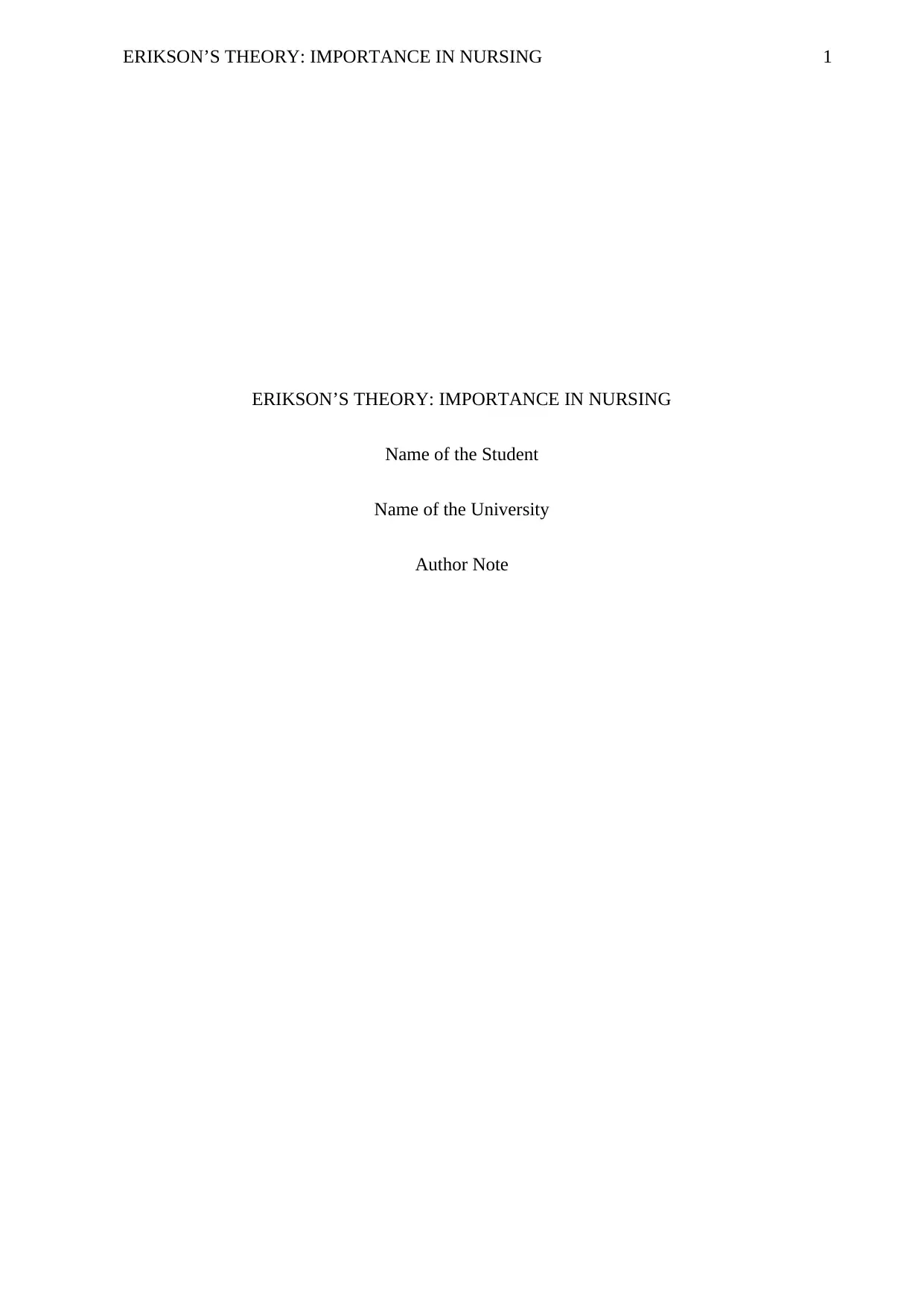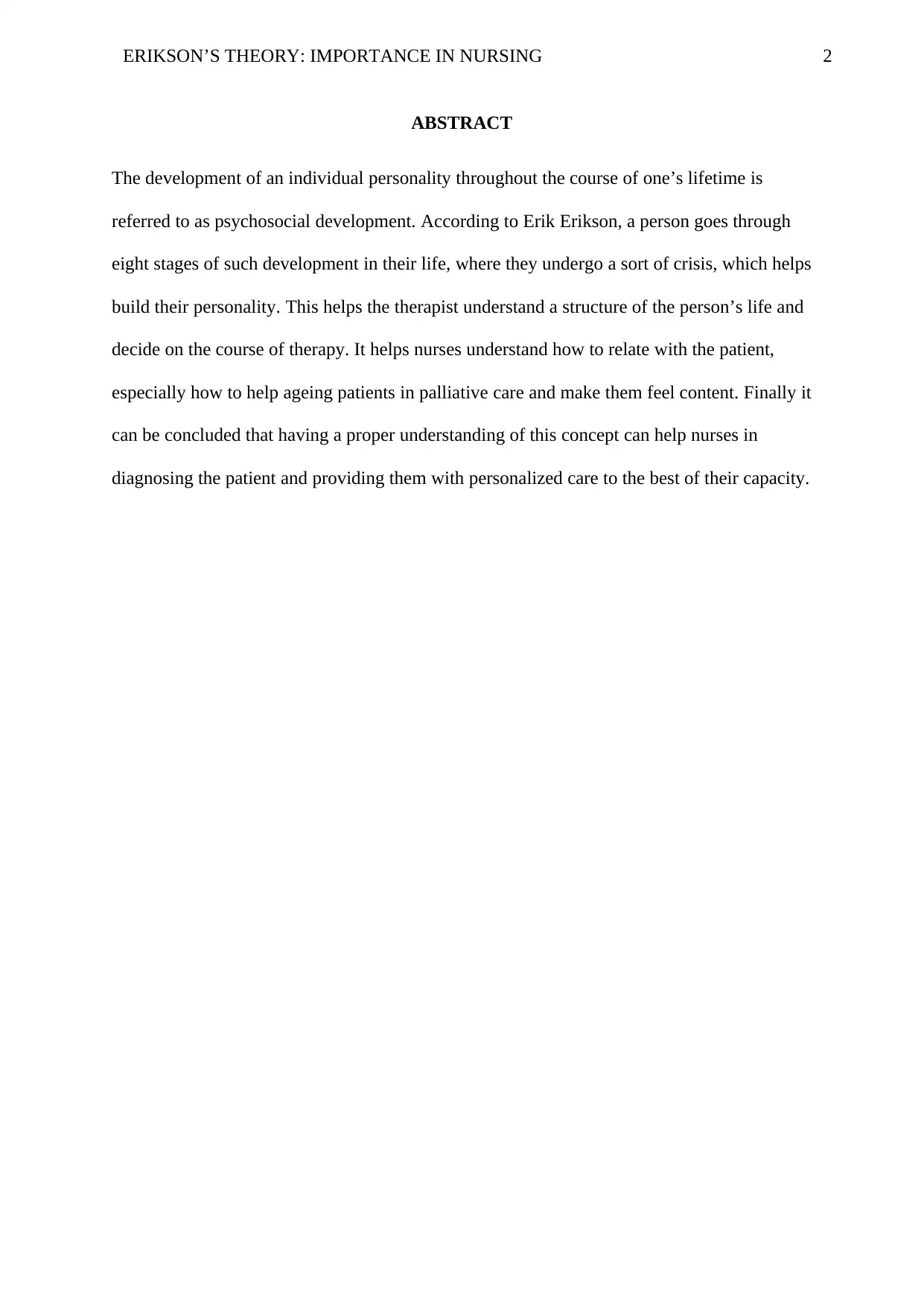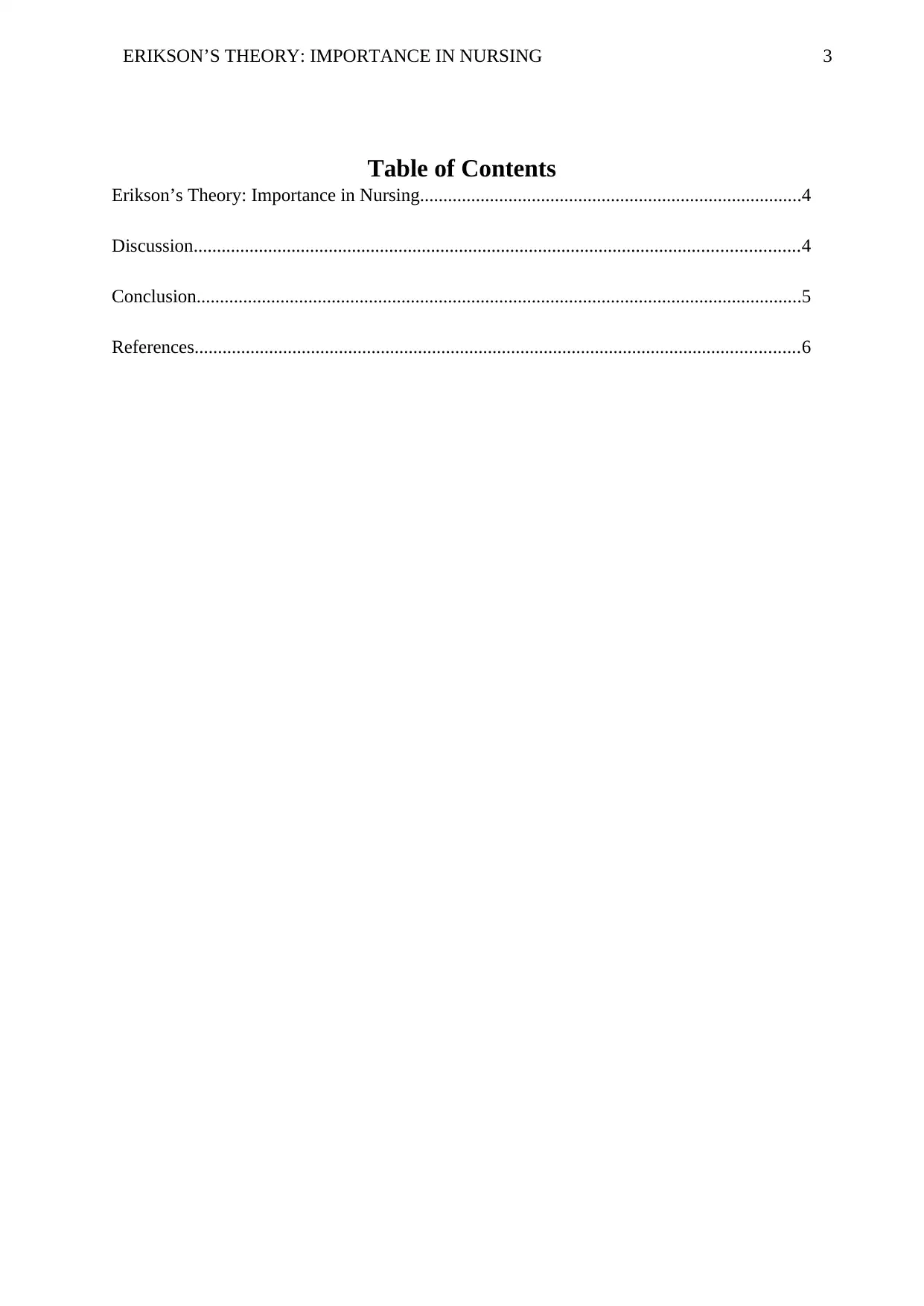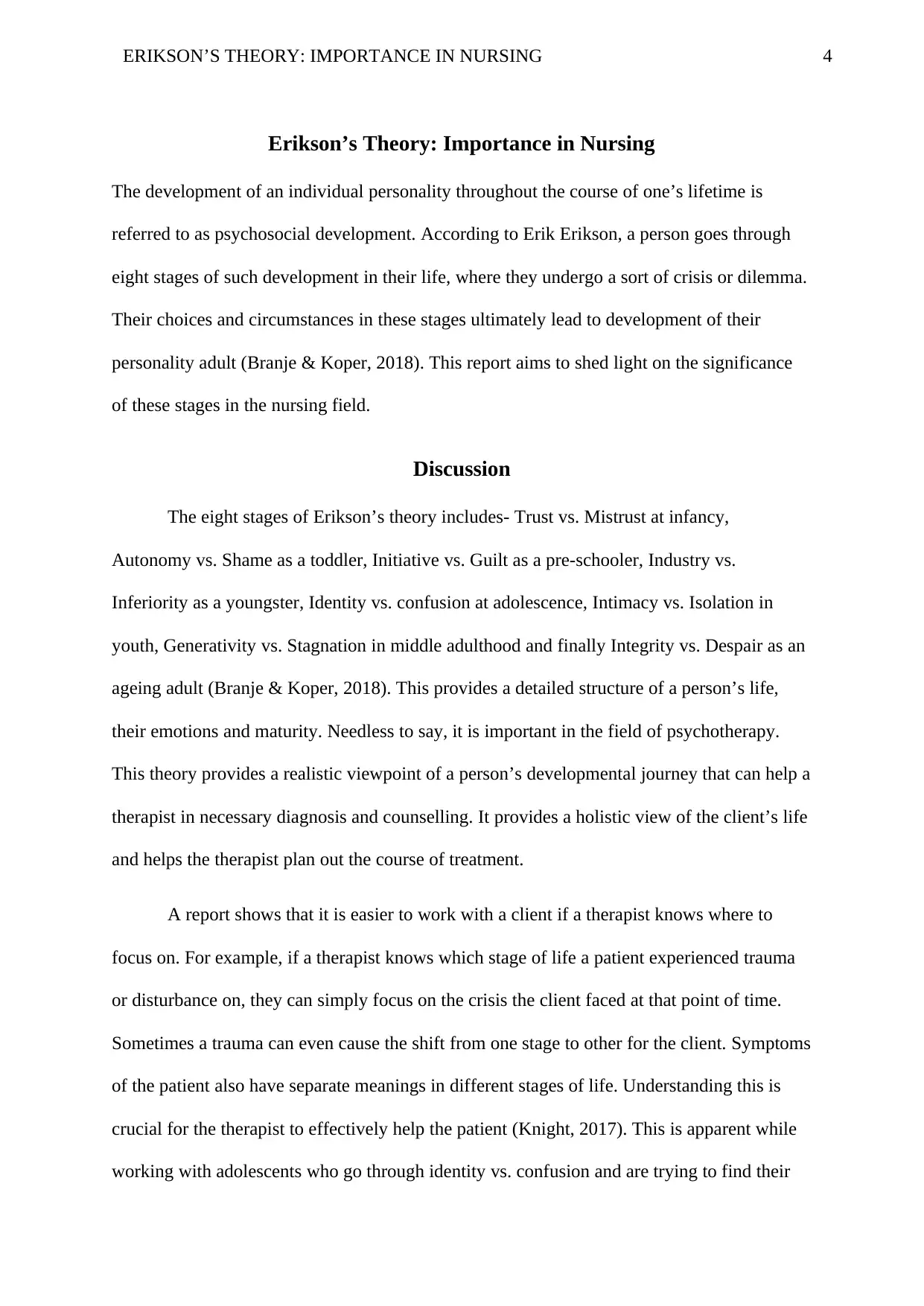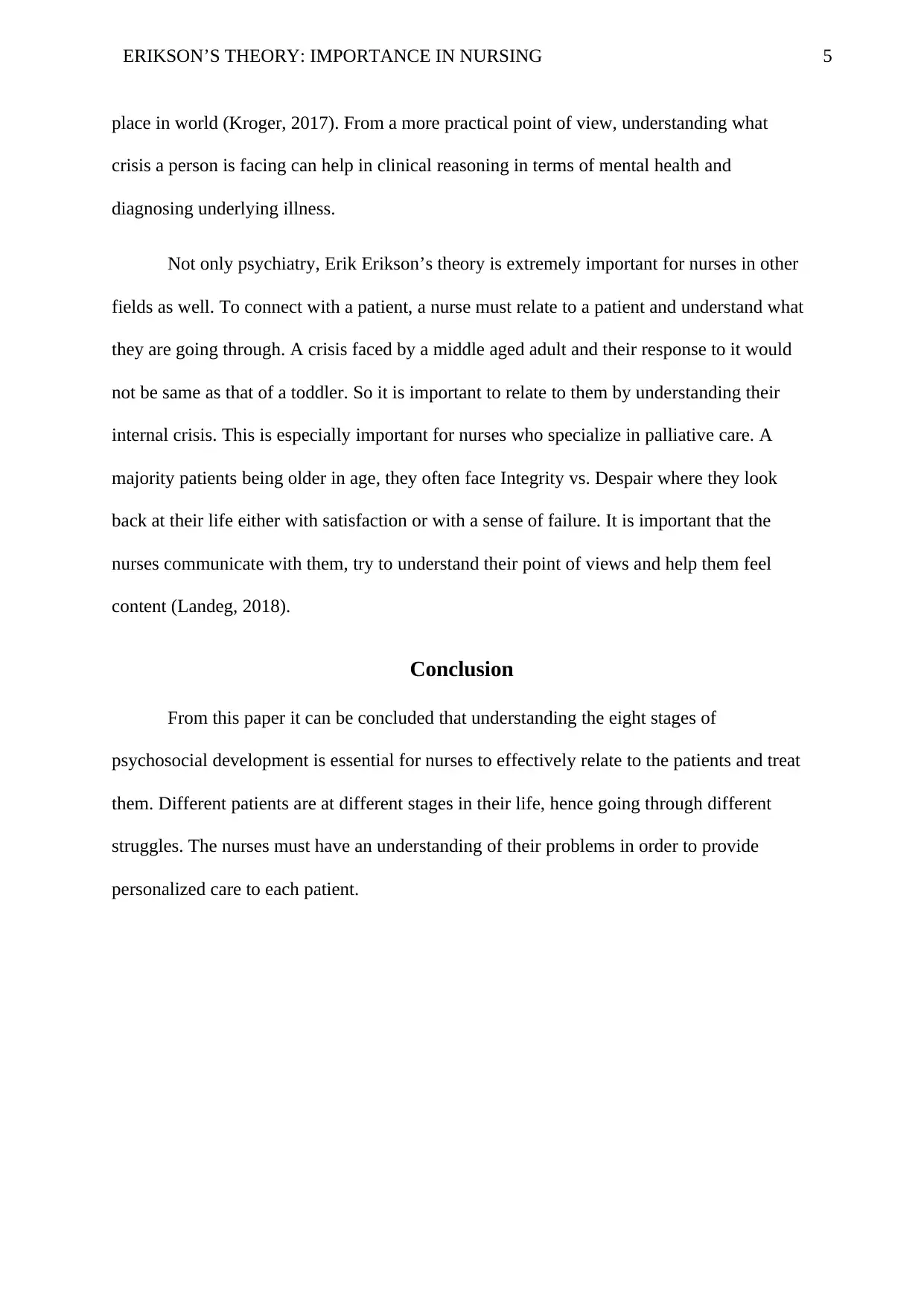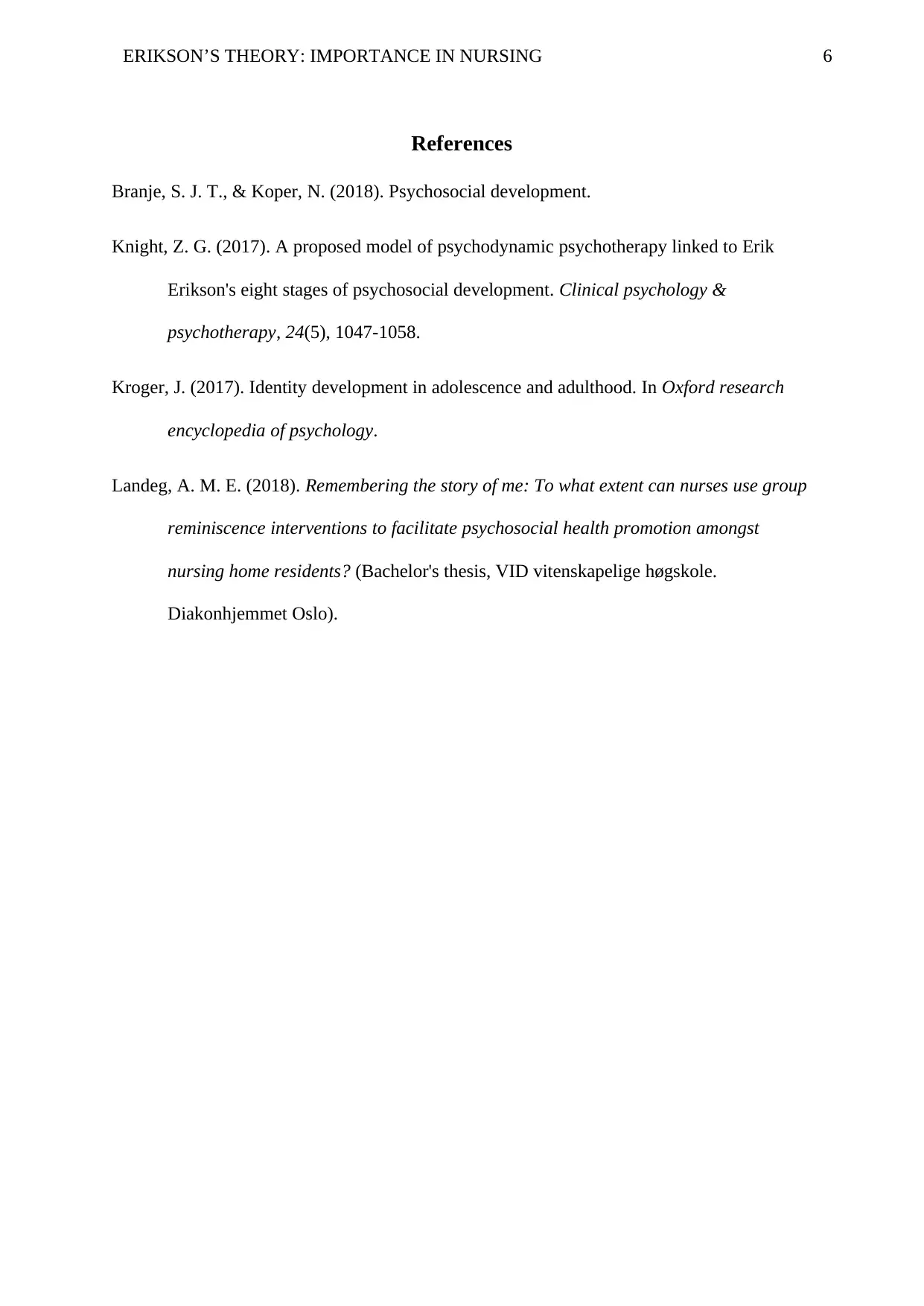Erikson's Theory: Its Significance and Importance in Nursing
VerifiedAdded on 2022/08/10
|6
|949
|38
Report
AI Summary
This report examines the significance of Erik Erikson's theory of psychosocial development in the field of nursing. It outlines the eight stages of development, from infancy to old age, and discusses how understanding these stages is crucial for nurses to effectively relate to and care for their patients. The report emphasizes the importance of recognizing the different crises individuals face at each stage, particularly in palliative care, where nurses can help older patients find contentment by understanding their life experiences. It concludes that a solid understanding of Erikson's theory enables nurses to provide personalized care, improve patient communication, and facilitate better mental health outcomes. The report highlights the application of this theory in clinical reasoning, patient assessment, and the development of therapeutic relationships, making it a valuable tool for nurses in various specializations.
1 out of 6
